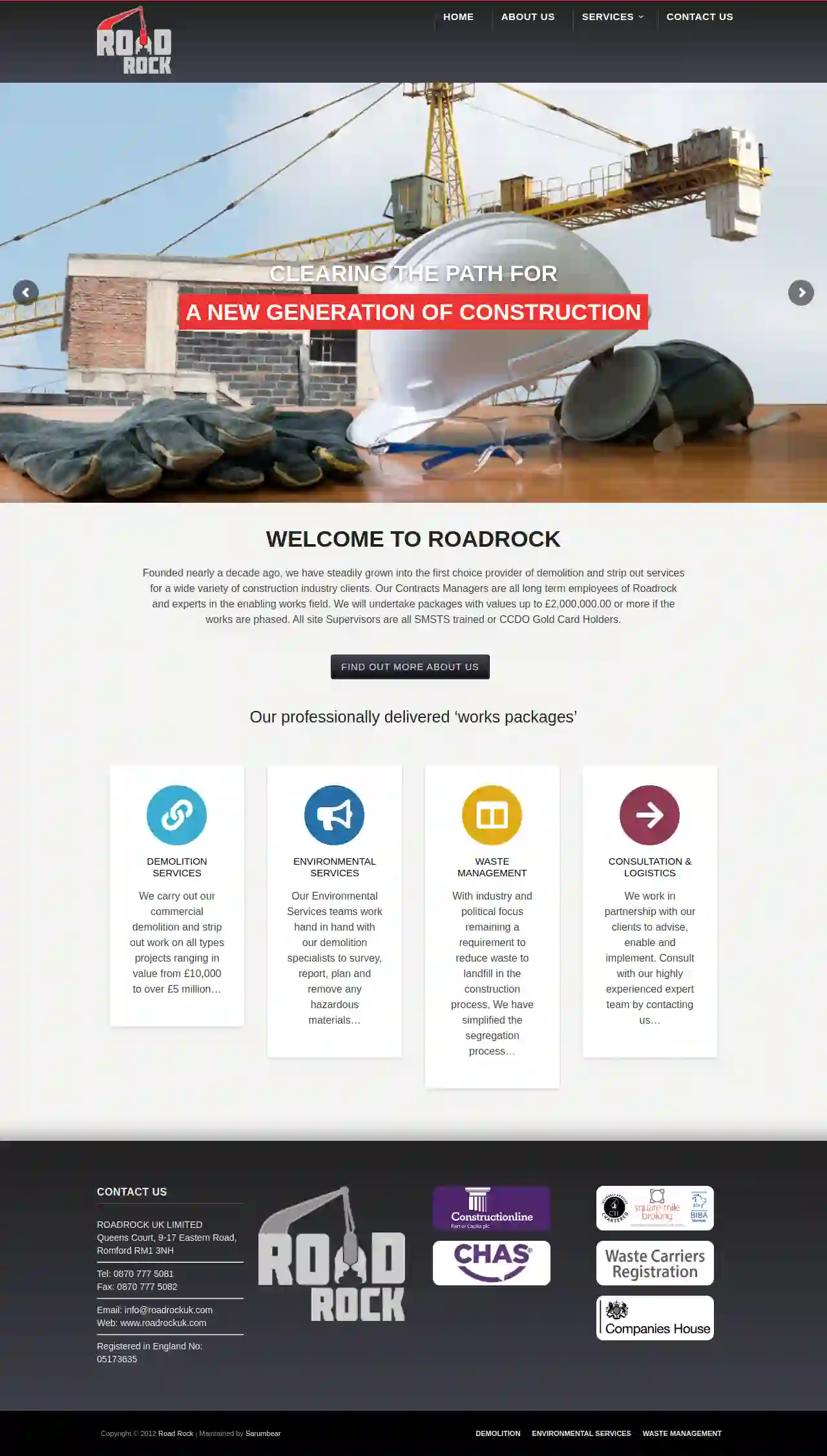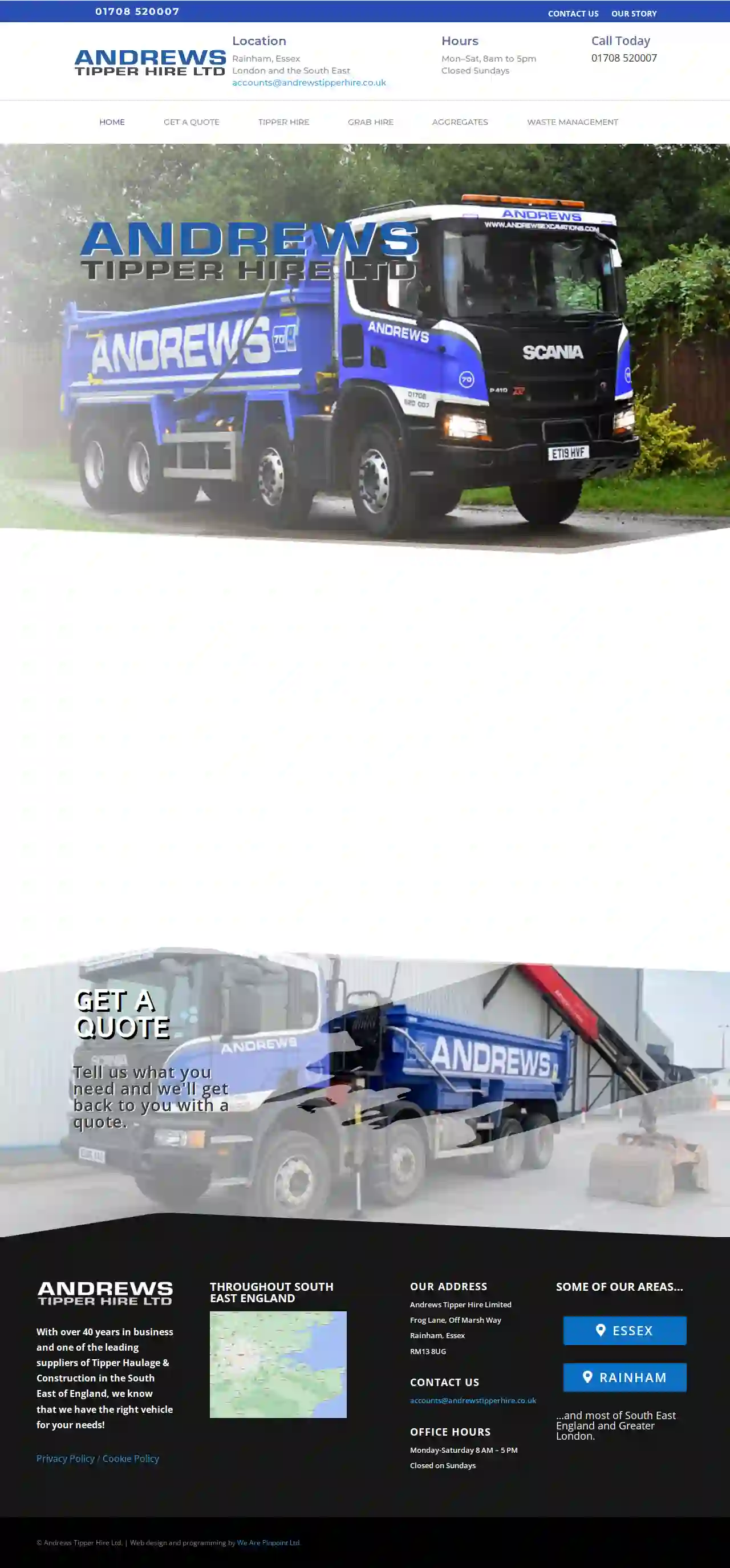Excavation Contractors Rainham
Find Excavation Contractor in Rainham
Get 3 FREE Excavation Companies quotes for your project today! Compare profiles, reviews, accreditations, portfolio, etc... and choose the best deal.

Kernahans Aggregates, Demolition & Groundworks
4.9182 reviewsRainham, GBWho are we? Kernahans Contractors is a reputable and experienced company that offers a comprehensive range of services, including demolition, groundworks, and driveway solutions. With our expertise and commitment to quality, we are your go-to partner for all your construction needs. Here's why Kernahans Contractors stands out: 🏗️ **Demolition Expertise:** Our skilled demolition team has the knowledge and equipment to handle projects of all sizes. Whether it's a small structure or a large building, we execute demolition with precision, adhering to safety standards and minimizing disruption to the surrounding environment. 🚧 **Groundworks Excellence:** From excavation and site preparation to drainage systems and foundation work, our experienced groundworks professionals ensure that your construction project is built on a solid foundation. 👷 **Driveway Installations:** We can help you design and install a beautiful driveway that will stand the test of time. We supply our own aggregates and decorative stones, so you can be sure that your driveway will be both stylish and durable. ♻️ **Waste Management:** Kernahans offers in-house waste management solutions, anything from grab hire, skip hire to man & van rubbish removal. We are a one-stop shop!
- Services
- Why Us?
- Gallery
Get Quote
Roadrock UK Ltd
1Queens Court, 9-17 Eastern Road, Romford, RM1 3NH, GBWelcome to Roadrock Founded nearly a decade ago, we have steadily grown into the first choice provider of demolition and strip out services for a wide variety of construction industry clients. Our Contracts Managers are all long term employees of Roadrock and experts in the enabling works field. We will undertake packages with values up to £2,000,000.00 or more if the works are phased. All site Supervisors are all SMSTS trained or CCDO Gold Card Holders. Our professionally delivered ‘works packages’ We are passionate about Health and Safety but also about all aspects of the Customer Experience. We like to think that we do things differently here and that our clients reap the benefits. All our staff are not only technically adept in their areas of expertise, they will also demonstrate that Roadrock are looking for long term, partnered client relationships. You will find our approach diligent, friendly, flexible, refreshing and above all professional. Our commitment is to identify the safest, most ecological and best possible value solution for our clients and ensure that we achieve this for you every time we work together. Our staff hold various levels of qualification ranging from CSCS and Asbestos Awareness Training through to CCDO Gold Cards and SMSTS Certificates. Roadrock are members of the CITB with a commitment to ongoing staff development. We carry £10m Public Liability Insurance and £5m Employers Liability Insurance.
- Services
- Why Us?
- Gallery
Get Quote
Andrews Tipper Hire Limited
51 reviewsFrog Lane, Off Marsh Way, Rainham, RM13 8UG, GBAndrews Tipper Hire Ltd. – Our Story With over 40 years in business and one of the leading suppliers of Tipper Haulage & Construction in the South East of England, we know that we have the right vehicle for your needs! Andrews was originally founded in the 1980´s by the company director Danny Andrews. Danny started out as an owner driver in his early 20´s driving his own Tipper lorry, this was built on experience of being brought up around lorries as his own father was also involved in the tipping industry. At just 15 years old he was out in the lorries with his dad and always had a huge interest in tipper lorries. Over the years Danny has gradually built the company up by adding more trucks to the fleet. Andrews are now one of the largest tipper operators in the South East of England. Danny takes pride in his business and enjoys building relationships with clients. He is always pushing to achieve more and will never give up which has led him to be a great success in this very competitive industry.
- Services
- Why Us?
- Our Team
- Gallery
Get Quote- RS
RS Brothers Services Ltd || Construction Services
1Rainham, GB- Services
- Why Us?
Get Quote - La
Lanes Group
2.68 reviewsRainham, GB- Services
- Why Us?
Get Quote - Gr
Gregandsons LTD - Best Plant Hire Company in London
4.841 reviewsRainham, GB- Services
- Why Us?
Get Quote - St
Station Haulage (Rainham) Ltd
1Rainham, GB- Services
- Why Us?
Get Quote - Ho
Hotico Ltd
1Rainham, GB- Services
- Why Us?
Get Quote
Over 11,537+ Excavation Companies in our network
Our excavation providers operate in Rainham and surroundings!
ExcavationHQ has curated and vetted the Best Excavation Businesses in and around Rainham. Find a top & trustworthy business today.
Frequently Asked Questions About Excavation Contractors
- Project Size and Scope: Larger, more complex excavations naturally take longer.
- Soil Conditions: Rocky or challenging soil types can slow down progress.
- Site Accessibility: Limited access might require more time for maneuvering equipment and hauling materials.
- Weather: Inclement weather can cause delays.
- Permitting and Inspections: Waiting for permits or inspections can extend the timeline.
- Clearly Define the Scope: Outline the project's goals, including the excavation area, depth, grade, and intended use.
- Obtain Necessary Permits: Research and acquire any required permits from your local authorities.
- Mark Utility Lines: Contact your utility companies to locate and mark underground utilities to prevent damage.
- Communicate with Neighbors: Inform your neighbors about the project's timeline and potential noise or disruptions.
- Prepare the Site: Clear any obstacles, such as vegetation, furniture, or structures, from the excavation area.
- Discuss Safety Protocols: Review safety procedures with the contractor to ensure a safe work environment.
How long does an excavation project take?
What is the difference between cut and fill excavation?
Cut: Involves excavating soil from an area where the existing grade is higher than the desired grade.
Fill: Refers to using the excavated soil ('cut' material) to raise the grade in an area where the existing grade is lower than desired.
This method minimizes the need to import or export soil, reducing costs and environmental impact. It's commonly used for site preparation, road construction, and landscaping.
What should I do before excavation starts?
What is the difference between topsoil and subsoil?
Topsoil: The uppermost layer, typically rich in organic matter, nutrients, and microorganisms. It's essential for plant growth and is often darker in color.
Subsoil: The layer beneath the topsoil, containing less organic matter and generally denser. It provides support for roots but is less fertile than topsoil.
During excavation, topsoil is often removed and preserved separately for later use in landscaping, while subsoil is typically used for backfilling or other less demanding applications.
How long does an excavation project take?
- Project Size and Scope: Larger, more complex excavations naturally take longer.
- Soil Conditions: Rocky or challenging soil types can slow down progress.
- Site Accessibility: Limited access might require more time for maneuvering equipment and hauling materials.
- Weather: Inclement weather can cause delays.
- Permitting and Inspections: Waiting for permits or inspections can extend the timeline.
What is the difference between cut and fill excavation?
Cut: Involves excavating soil from an area where the existing grade is higher than the desired grade.
Fill: Refers to using the excavated soil ('cut' material) to raise the grade in an area where the existing grade is lower than desired.
This method minimizes the need to import or export soil, reducing costs and environmental impact. It's commonly used for site preparation, road construction, and landscaping.
What should I do before excavation starts?
- Clearly Define the Scope: Outline the project's goals, including the excavation area, depth, grade, and intended use.
- Obtain Necessary Permits: Research and acquire any required permits from your local authorities.
- Mark Utility Lines: Contact your utility companies to locate and mark underground utilities to prevent damage.
- Communicate with Neighbors: Inform your neighbors about the project's timeline and potential noise or disruptions.
- Prepare the Site: Clear any obstacles, such as vegetation, furniture, or structures, from the excavation area.
- Discuss Safety Protocols: Review safety procedures with the contractor to ensure a safe work environment.
What is the difference between topsoil and subsoil?
Topsoil: The uppermost layer, typically rich in organic matter, nutrients, and microorganisms. It's essential for plant growth and is often darker in color.
Subsoil: The layer beneath the topsoil, containing less organic matter and generally denser. It provides support for roots but is less fertile than topsoil.
During excavation, topsoil is often removed and preserved separately for later use in landscaping, while subsoil is typically used for backfilling or other less demanding applications.